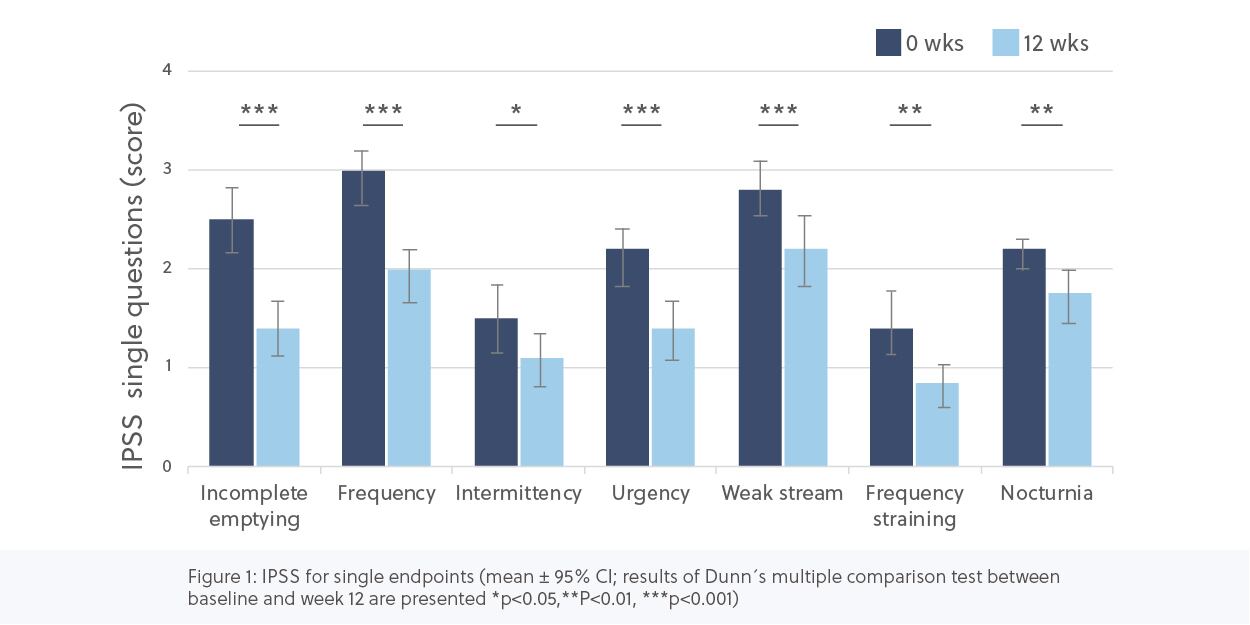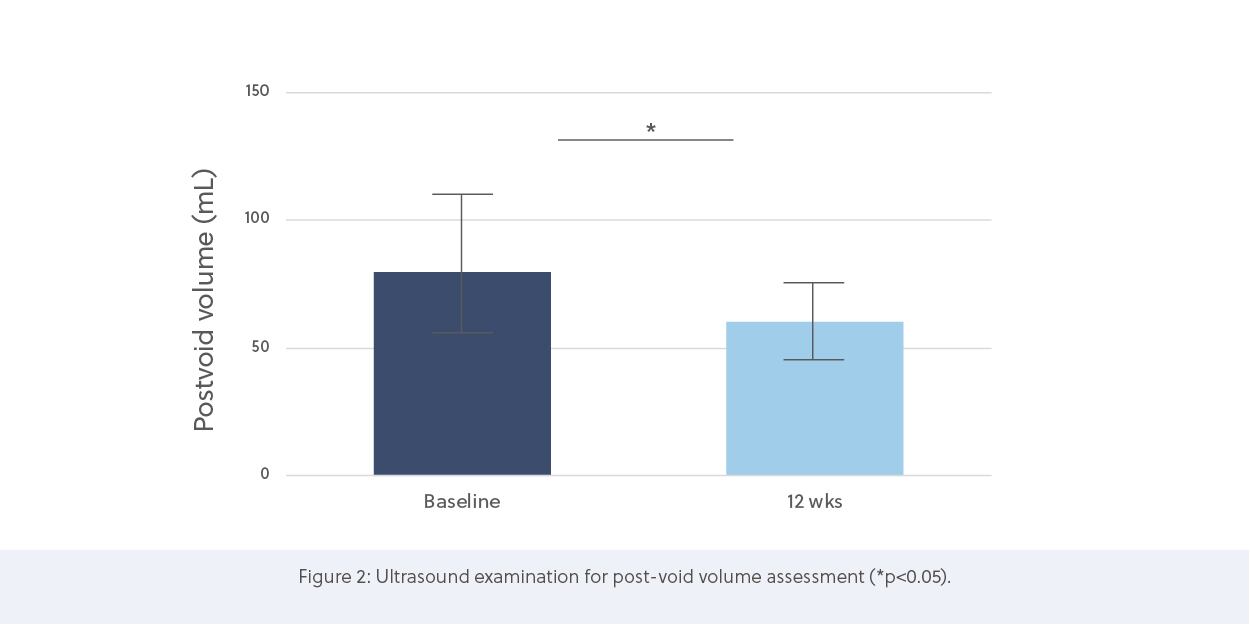By Moran Werner Saido, Product Manager, Frutarom Health
Urinary health is a growing concern for older male consumers who are increasingly seeking natural solutions.
Waking up several times at night to use the bathroom. An urge to run to the toilet all the time. A feeling of not being able to hold it in for long. These are all common experiences for the millions of consumers affected by lower urinary tract symptoms (LUTS). LUTS can affect and reduce quality of life, and is associated with various health conditions, including depression.
LUTS affect up to 50m American men and refers to the symptoms of problems in the lower urinary tract, including the bladder, prostate and urethra. Urinary frequency, which is a well-known symptom of lower urinary tract problems, becomes more common with age, during the day and over the night, with nearly a half of people over the age of 60 suffering from nocturia.1 Nocturia is a condition in which you wake up more than once during the night to urinate.
Nocturia can be caused by a variety of factors, including benign prostatic hyperplasia (BPH), prostatitis, stress and other factors. Urinary frequency and incontinence during the night have been linked with marked deterioration of quality of life and self-confidence.2
BPH is an age-related condition in men which the prostate gland is enlarged. DHT is a male hormone which has effect on prostate development and growth. Research has indicated that older men continue to produce and accumulate high levels of DHT in the prostate. This may encourage prostate cells to continue to grow.3
According to the Urology Care Foundation, BPH is the most common prostate problem in men over the age of 50, affecting every second man between the ages of 51 and 60 and up to 90% of those over the age of 80.3 Thus, it represents a substantial disease burden that can have a significant impact on quality of life.
Phytomedicine therapies have traditionally been used to support urinary tract symptoms. Clinical researchers demonstrate an increasing benefit from use of phytomedicine therapies, without the side effects associated with medical therapy.
To meet increasing demand for natural solutions for consumers affected by LUTS, Frutarom has developed Go-Less Men (EFLA940) – a natural, proven and effective support solution for prostate health backed up by gold standard clinical evidence.
Safety and efficacy solution
A new study showed a marked overall improvement of symptoms associated with BPH following treatment with Go-Less Men (EFLA940) marketed by Frutarom Health.4
The efficacy of the extract was evaluated using the International Prostate Symptom Score (IPSS), a validated questionnaire used to track symptoms of BPH. It includes seven questions about symptoms and one about Quality of Life (QoL). Additionally, the frequency of urination during the day and night was recorded in bladder diaries, and post-void residual urine volume was determined via ultrasound.
All the results were statistically significant and showed Go-Less Men (EFLA940) to be effective for supporting health benefits in men suffering from BPH-related symptoms. Results included:
- 78.6% reported an overall improvement of BPH-associated symptoms
- 15.7 points score (IPSS) was reduced to 10.8 points (p<0.001)
- Total IPSS reduction was 30.1%
- Significant drop in post-void urinary volume from 83.97ml to 63.11ml
- Significant improvement in quality of life parameters
- Symptom alleviation was already significant after four weeks (p<0.01)

IPSS for single endpoints (mean ± 95% CI; results of Dunn´s multiple comparison test between baseline and week 12 are presented *p<0.05,**P<0.01, ***p<0.001)

Ultrasound examination for post-void volume assessment (*p<0.05).
The study’s results show that Go-Less Men (EFLA940) is very well tolerated and appropriate to provide health benefits in a group suffering from BPH-related symptoms without the need of medical treatment. No treatment-related adverse events were observed.
This study aimed to strengthen the existing clinical evidence about pumpkin seeds in general and on Go-Less Men (EFLA940) in particular.
Go-Less Men (EFLA940) extract (in combination with soy germ extract) was found in clinical studies to have positive outcomes, both in vitro and in an animal model. It was shown to reduce prostatic 5-α-reductase activity, with inhibiting effects on prostate tissue growth and decrease in the urination frequency on elderly men with nocturnal incontinence.
Go-Less Men (EFLA940) also improved quality of life through significant alleviation of symptoms. During the period of supplementation with Go-Less Men (EFLA940), the percentage of men being “pleased” with their quality of life increased from 5.4% at baseline to 35.7% at the end of intervention. In parallel, the proportion of participants being “unhappy” was reduced from 21.4% to 3.6%.
Go-Less Men (EFLA940) is a natural extract from the defatted pumpkin seeds of Cucurbita pepo L. ssp. pepo var. styriaca is manufactured by a proprietary decontamination procedure resulting in an oil-free pumpkin seed extract to ensure increased stability, purity, solubility and eliminate any chances of rancidity and offers extensive natural health benefits.
- Kupelian V., et al. Arch Intern Med. 2006;21:2381–7
- Coyne KS., et al. BJU Int. 2009:4–11
- Brigham Egan K. Urol Clin N Am 2016; 43: 289-297.
- Loibbrand M et al. Journal of Medicinal Food 2019








